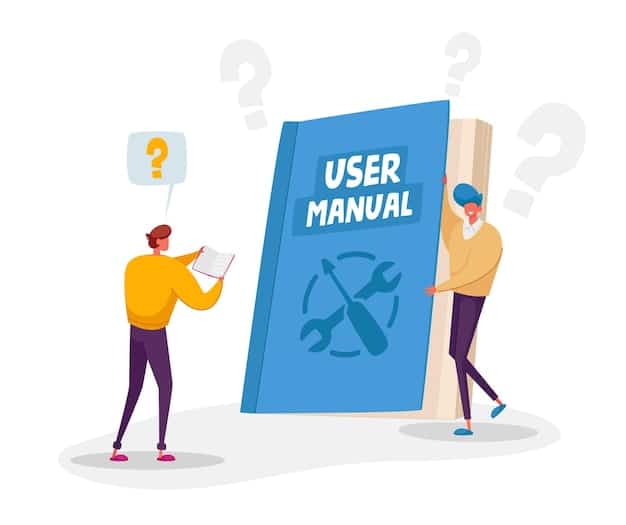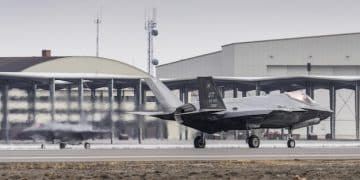Understanding US Defense Industry Ethics: Integrity and Conflicts of Interest

US Defense Industry Ethics: Avoiding Conflicts of Interest and Maintaining Integrity are crucial for ensuring fair practices and safeguarding national security interests. These ethical standards help prevent corruption and promote responsible conduct within the defense sector.
The **US Defense Industry Ethics: Avoiding Conflicts of Interest and Maintaining Integrity** is essential for preserving the integrity of national security and maintaining public trust. The defense industry plays a critical role in providing the tools and technologies necessary for the country’s defense, making it imperative to uphold the highest ethical standards.
How can the US defense industry ensure ethical conduct and avoid conflicts of interest? Let’s explore the key aspects of maintaining integrity in this crucial sector.
Understanding the Importance of Ethics in the US Defense Industry
Ethics in the US defense industry are paramount due to the significant impact this sector has on national security, public trust, and global stability. Adhering to high ethical standards ensures responsible conduct and accountability within the defense sector.
Why Ethics Matter in the Defense Industry
The defense industry operates under intense scrutiny due to the sensitivity of its work and the substantial financial resources involved. Ethical breaches can have severe consequences, undermining national security and eroding public confidence. Here are key reasons why ethics matter:
- National Security: Ethical lapses can compromise the quality and reliability of defense equipment, posing risks to military personnel and national defense.
- Public Trust: The public expects defense contractors to act with integrity and transparency, especially given the industry’s reliance on taxpayer dollars.
- Financial Responsibility: Ethical conduct helps prevent fraud, waste, and abuse of government funds, ensuring resources are used efficiently and effectively.
- Global Stability: Ethical behavior in international transactions is crucial for maintaining diplomatic relations and avoiding conflicts.
Maintaining a strong ethical framework within the defense industry promotes responsible decision-making, protects national interests, and fosters a culture of integrity. This involves a commitment to transparency, accountability, and adherence to legal and regulatory standards.

In conclusion, the importance of ethics in the US defense industry cannot be overstated. It is fundamental to safeguarding national security, maintaining public trust, and ensuring responsible financial management and ethical global interactions.
Conflicts of Interest in the US Defense Industry
Conflicts of interest in the US defense industry pose significant challenges to maintaining integrity and ensuring fair practices. These conflicts can arise in various forms and can compromise decision-making processes.
Common Types of Conflicts of Interest
Conflicts of interest can manifest in different ways within the defense industry. Understanding these common types is crucial for identifying and mitigating potential ethical breaches. Here are some key areas where conflicts frequently occur:
- Financial Interests: Employees or officials holding financial stakes in defense companies, which can influence procurement decisions.
- Dual Employment: Individuals working for both the government and a defense contractor simultaneously, blurring lines of accountability.
- Revolving Door: Government officials leaving their positions to work for defense contractors (or vice versa), potentially leveraging insider knowledge.
- Personal Relationships: Close personal ties between government employees and industry representatives, leading to biased treatment.
Addressing these conflicts requires robust oversight mechanisms, clear ethical guidelines, and a culture of transparency within both government agencies and defense companies. Implementing strict regulations and promoting ethical awareness are essential steps.
Identifying and addressing conflicts of interest requires robust mechanisms, clear ethical guidelines, and a commitment to transparency. Educating employees on ethical standards and implementing thorough oversight processes are critical steps in maintaining integrity within the defense industry.
Legal Frameworks and Regulations Governing US Defense Industry Ethics: Avoiding Conflicts of Interest and Maintaining Integrity
Several legal frameworks and regulations govern **US Defense Industry Ethics: Avoiding Conflicts of Interest and Maintaining Integrity**. These laws are designed to ensure transparency, prevent corruption, and promote ethical conduct.
Key Legislation and Regulations
Understanding the legal landscape is vital for defense contractors and government employees alike. Several key pieces of legislation and regulations shape ethical standards in the US defense industry.
- Anti-Kickback Act: Prohibits the exchange of anything of value to improperly obtain or reward favorable treatment related to a government contract.
- False Claims Act: Imposes liability on individuals and companies who defraud governmental programs, including defense contracts.
- Procurement Integrity Act: Aims to prevent the release of sensitive information about government procurement actions.
- Ethics in Government Act: Sets standards of ethical conduct for government employees, including restrictions on financial interests and outside employment.
These laws provide a foundation for ethical behavior, but their effectiveness depends on rigorous enforcement and a strong commitment to ethical conduct from all stakeholders. Regular training and compliance programs help ensure that defense industry professionals are aware of and adhere to these regulations.
In conclusion, the legal frameworks and regulations are crucial for maintaining integrity within the sector. Strict adherence to these rules is crucial for preventing unethical practices and fostering a culture of compliance.
Best Practices for Maintaining Integrity in the US Defense Industry
Maintaining integrity in the US defense industry requires a comprehensive approach that goes beyond mere compliance with regulations. Here are some best practices.

Implementing Effective Ethics Programs
Effective ethics programs are essential for fostering a culture of integrity within defense companies. These programs typically include the following components:
- Code of Conduct: A clearly defined set of ethical principles and expectations for all employees.
- Training: Regular training sessions to educate employees on ethical issues, conflict of interest, and relevant laws.
- Reporting Mechanisms: Confidential channels for employees to report potential ethical violations without fear of reprisal.
- Internal Audits: Periodic reviews to assess compliance with ethical standards and identify areas for improvement.
Additionally, leaders must champion ethical behavior, setting an example for their teams and reinforcing the importance of integrity. A commitment to ethical leadership is crucial for creating a culture where ethical conduct is valued and upheld.
In conclusion, effective ethics programs, coupled with strong ethical leadership, form the cornerstone of maintaining integrity in the defense industry. By prioritizing ethical behavior, companies can mitigate risks, protect their reputation, and contribute to national security.
The Role of Oversight and Accountability in US Defense Industry Ethics: Avoiding Conflicts of Interest and Maintaining Integrity
Oversight and accountability are fundamental to ensuring **US Defense Industry Ethics: Avoiding Conflicts of Interest and Maintaining Integrity**. Robust oversight mechanisms and clear accountability standards help prevent ethical breaches and promote responsible conduct.
Strengthening Oversight Mechanisms
Effective oversight requires a multi-faceted approach involving government agencies, internal company controls, and independent auditors. Key elements of strong oversight include:
- Government Audits: Regular audits by agencies such as the Defense Contract Audit Agency (DCAA) to review financial transactions and contract compliance.
- Whistleblower Protection: Protecting individuals who report fraud, waste, and abuse from retaliation, encouraging transparency.
- Independent Reviews: Engaging external experts to conduct independent reviews of ethical practices and compliance programs.
Greater transparency in contracting processes can also enhance oversight. Making contract terms, negotiations, and performance records more accessible to the public can deter unethical behavior and promote accountability.
Strengthening oversight mechanisms and establishing clear accountability standards are essential for maintaining ethical conduct in the US defense industry. By promoting transparency and protecting whistleblowers, the industry can foster a culture of accountability.
Future Trends in US Defense Industry Ethics
The landscape of ethical considerations in the US defense industry is continually evolving. Several emerging trends are likely to shape ethical practices in the coming years.
Anticipating Future Challenges
As technology advances and the global geopolitical landscape shifts, new ethical challenges will emerge. Defense companies must be proactive in addressing these challenges to maintain their integrity.
- Artificial Intelligence (AI): Ensuring the ethical development and deployment of AI in defense applications, including issues of bias, accountability, and autonomous weapons.
- Cybersecurity: Protecting sensitive data and preventing cyberattacks that could compromise national security or violate privacy.
- Supply Chain Integrity: Ensuring ethical labor standards and preventing the use of conflict minerals throughout the defense supply chain.
- Geopolitical Risks: Navigating complex international relationships and ensuring ethical conduct in foreign transactions.
Defense companies must adapt their ethical frameworks to address these emerging challenges. This requires ongoing dialogue with stakeholders, including government regulators, industry experts, and the public.
The future of ethics in the US defense industry will be shaped by technology advancements and evolving global challenges. By proactively addressing these issues, the industry can ensure its integrity and maintain public trust. This involves promoting innovation while upholding the highest ethical standards.
| Key Point | Brief Description |
|---|---|
| 🛡️ Importance of Ethics | Ensures national security, public trust, and financial responsibility. |
| ⚖️ Conflicts of Interest | Financial interests, dual employment, and personal relationships. |
| 📜 Legal Frameworks | Anti-Kickback Act, False Claims Act, and Procurement Integrity Act. |
| 🔍 Oversight & Accountability | Government audits and whistleblower protection. |
Frequently Asked Questions
Ethical conduct is essential to safeguard national security, maintain public trust, ensure financial accountability and support ethical international relations within the **US Defense Industry Ethics: Avoiding Conflicts of Interest and Maintaining Integrity** framework.
Common conflicts of interest encompass financial interests, dual employment, the revolving door phenomenon, and personal relationships that could compromise impartial decision-making.
Laws like the Anti-Kickback Act and the False Claims Act hold individuals and companies accountable for unethical behavior, ensuring compliance and transparency in the **US Defense Industry Ethics: Avoiding Conflicts of Interest and Maintaining Integrity**.
Implementing clear codes of conduct, providing regular training, establishing confidential reporting mechanisms, and conducting internal audits are key strategies for fostering ethical conduct.
Robust oversight by government agencies, whistleblower protection, and independent reviews are vital for detecting and preventing ethical violations in the **US Defense Industry Ethics: Avoiding Conflicts of Interest and Maintaining Integrity** context.
Conclusion
In conclusion, upholding strong ethical standards in the US defense industry is critical for maintaining national security, fostering public trust, and ensuring responsible conduct. By addressing conflicts of interest, adhering to legal frameworks, and implementing best practices, the industry can mitigate risks and promote a culture of integrity.
As the defense landscape continues to evolve, it is crucial for companies to remain proactive in anticipating future ethical challenges and adapting their frameworks accordingly. This commitment to ethical behavior ensures the long-term sustainability and success of the **US Defense Industry Ethics: Avoiding Conflicts of Interest and Maintaining Integrity**.





